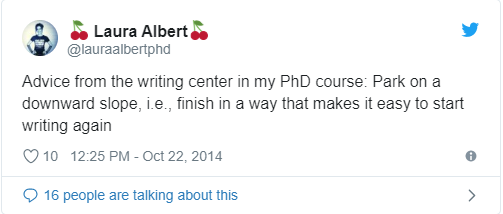I was upset to read the Wall Street Journal op/ed entitled, “Is There a Doctor in the White House? Not if You Need an M.D. Jill Biden should think about dropping the honorific, which feels fraudulent, even comic.” The op/ed was upsetting, because it suggested that anyone who has earned a degree that comes with the title of “Dr., such as those with a PhD or Ed.D., should not use their titles for degrees they earned.
This is concerning because research has shown that women doctors are less likely to be called by their titles then men, almost half of Black and Latina professors report having been mistaken for janitorial staff, and women and BIPOC professors routinely have their credentials ignored. Women over-invest in credentials, in part because research has shown that women need more credentials than men to be considered for awards and promotions.
The problem is not with Dr. Biden, it is with the cultural construct of expertise, who is presumed to have it, and who is given permission to wield the terms of power that signify it. In dominant culture, the construct of “expert” is based on false hierarchies – crafted to exclude the vast majority of the world’s knowledge (including the expertise of women and people of color).
Katie Orenstein from the twitter thread below about the WSJ article.
Mis-titling and de-titling professors is an equity issue. I gave some thought as to how to address this issue. I have a few suggestions below that are based on my experiences.
Here is some background. I used to ask students in my research group to use my title and last name. Students in other research groups often called me by my first name without my permission, and I found it strange that they addressed me in a casual way even after hearing the students in my research group address me in a formal way. There seemed to be two causes. (1) Students on a first name basis with their advisors and possibly other professors incorrectly assume that all professors let students call them by their first name. (2) Other professors, with whom I am on a first name basis, refer to me using only my first name in front of other students, which gives the students “permission” to call me by my first name. But I did not given permission. The students’ advisors in these situations have almost entirely been male, which possibly reflects societal constructs of power. Men inadvertently signal to students when it is acceptable to de-title and mis-title others, and these signals carry a lot of weight, especially if the person in question is a woman and/or is BIPOC. It seems that is was worth explicitly addressing these two mechanisms to reduce the chances that other professors are not mis-titled or de-titled.
I now ask students in my research group to call me by my first name. I wanted to make sure that all students knew what to call me while also not de-titling other professors, since new students have joined my group. In this conversation, I was surprised that not everyone knew about this rule, so I was glad we revisited this so I could make corrections and make sure that no one feels singled out.
I discussed the article with the students in my lab and this is what I suggest.
- On a regular basis, remind all students how you would like to be addressed in a group meeting , such as when new students join the lab. This can also be included in a lab compact.
- Use professors’ titles (Professor or Dr.) in informal settings unless they say otherwise. If they have given you permission to call them by their first name, it is still appropriate to sometimes use their titles, such as when there are other professors or students in a conversation.
- Use professors’ titles in formal settings, such as when introducing a speaker or in a committee meeting.
- When in doubt, ask someone what they want to be called.
What else is missing from this list?
In full disclosure, I have not always followed these rules in practice, and I will make a conscious effort to do better. I am a work in progress. I try to learn and make adjustments on a regular basis for continuous improvement.
For more reading, read my post about changing my name:









